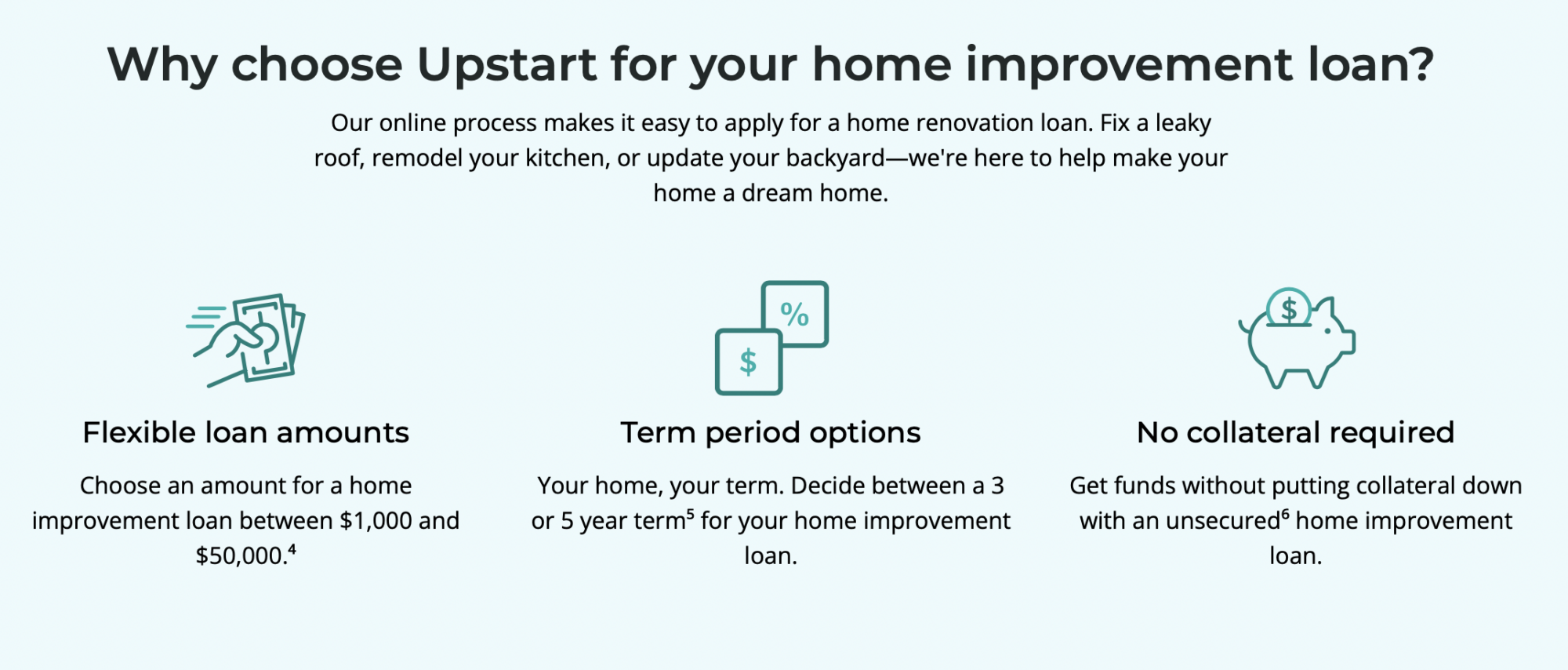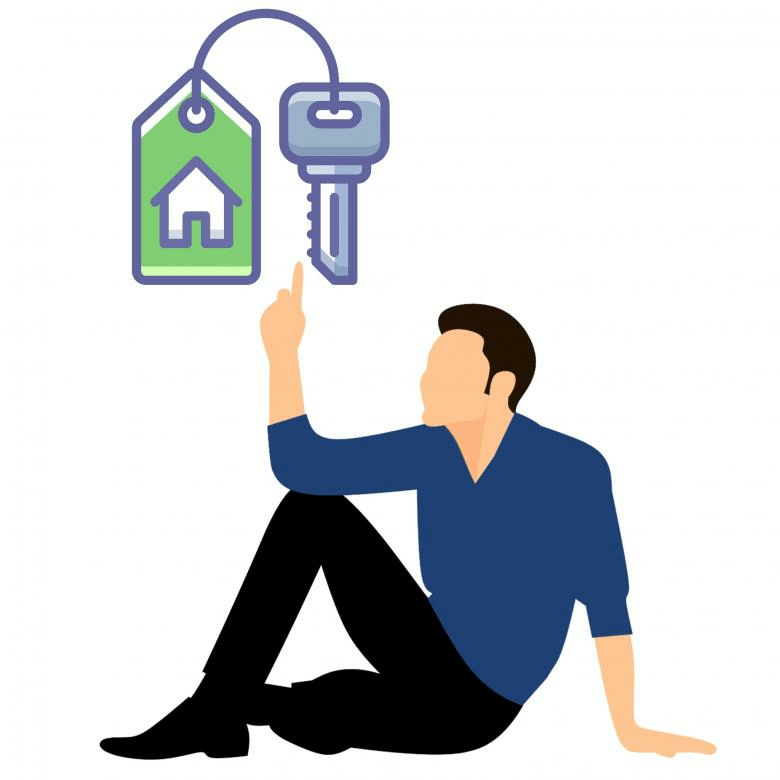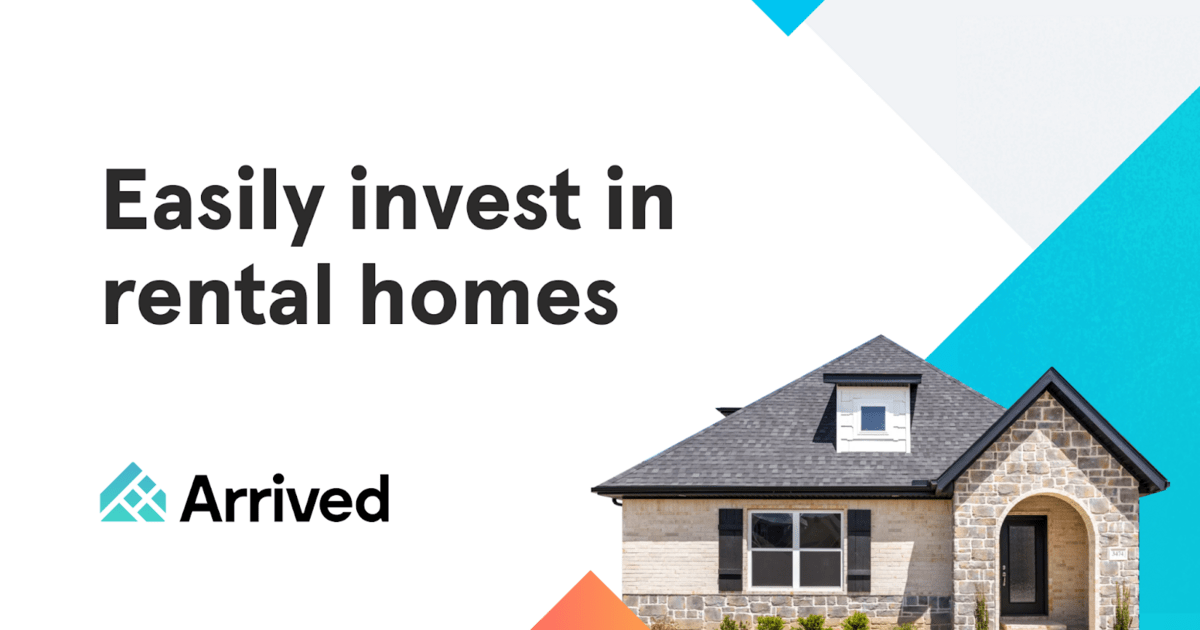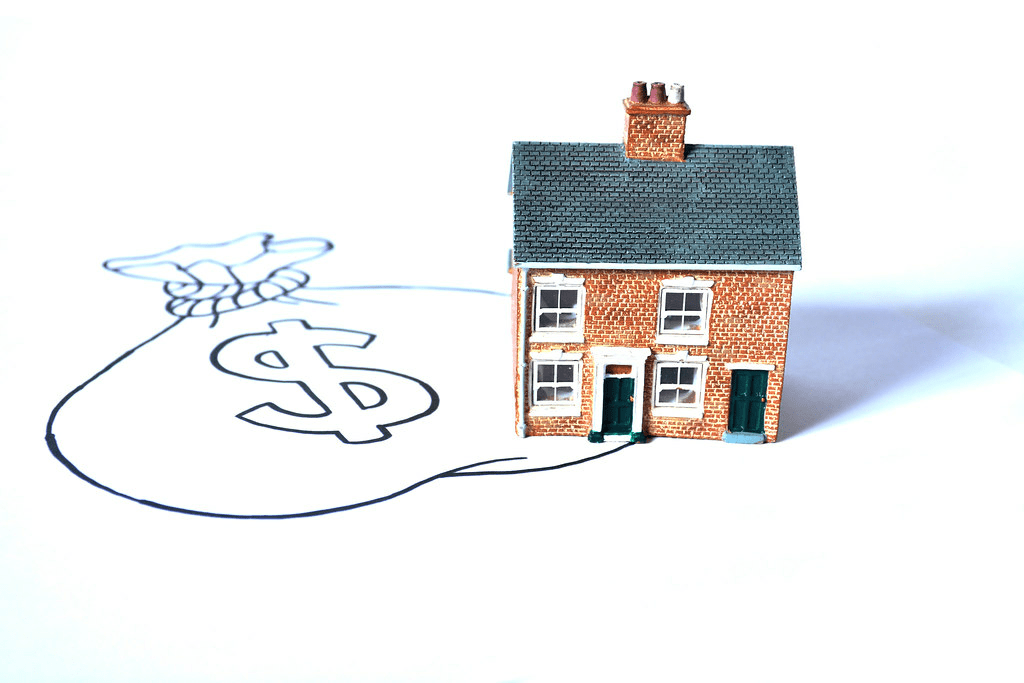Real estate investing is a process. It’s an action that you partake in, not a finish line to cross.
The good news is that if you want to engage in the process and learn how to become a property investor, you can do so starting today — even with a small account.
But how? If you want to learn how to become a real estate investor, you’re in the right place. In this article, I’ll guide you through everything you need to know to get started — how does real estate investing work? What investing options are available to you? What should you do first?
By the time you’re done reading, you’ll not only understand how to become a property investor, but how to start thinking and acting like one.
Our top 3 platforms for starting in real estate investing
Want to know how to get into real estate investing? Check out these highly-rated platforms:
- Alternative investment eREITs + more: Fundrise
- Commercial real estate + more: Yieldstreet
- Low-minimum access to rental properties: Arrived Homes
Note: Yieldstreet opportunities are primarily available to accredited investors.
Why You Should Consider Real Estate Investing
When you invest in real estate, you’re investing in a human essential. And that’s a pretty good thing to bet on.

Real estate is still widely considered one of the best asset classes because it grows at a steady rate.
Unlike stocks, crypto, or ETFs, there’s a real, tangible item underlying it: a building or piece of land. Unless the building burns down or the land gets swallowed up by a sinkhole, there will always be some value there, whereas a stock can quite literally just go poof.
Beyond that, as long as there are people, they will always need a place to live — it’s one of the few constants in the world. Over the past hundred years, lots of things have come and gone, from Betamax to Myspace to Dogecoin, but people have needed places to live and work the whole time.
Ready to learn how to get into real estate investing? Let’s get to it.
How Does Real Estate Investing Work?
When you invest in real estate, there are two primary ways you can make money: property value appreciation and charging rent.
Investing in real estate with a property value appreciation strategy functions pretty similarly to stock investing: you buy a property at one price and sell it at a (hopefully) higher price for a profit.
If you simply buy a property and wait for the value to appreciate, that’s called a buy-and-hold strategy. It’s the same principle as a stock buy-and-hold strategy.
However, when you invest in real estate, you can do things to increase the value of the property, while with most other investments, you’re entirely at the whims of the market. For example…
- House flipping: You can buy a rundown property, fix it up yourself, and sell it for a much higher price.
- Wholesaling: If you’ve ever seen a sign that says “We pay cash for houses,” you’ve encountered a real estate wholesaler. These investors try to find sellers in difficult situations that need to sell fast, pay them under fair market value for their home, and then profit off a sale at fair market value.
- Renting: Buy a property, rent it out to tenants, and collect monthly rent payments.
These four strategies are all part of direct real estate investment. But there’s another type of strategy that falls under the umbrella of indirect investing. We’ll get to that in just a little bit. But first…
Curious about investing in apartment complexes? Check out this article.
The 5 Steps for Starting in Real Estate Investing
If you’re wondering how to become a real estate investor, here are 5 steps you can take to build your own process.
1. Determine your investment strategy.
The first thing you need to do is figure out what approach you want to take with your investments…
- Do you want to flip houses?
- Do you want to purchase a multi-family property and make rental income?
- Or do you want to take a more passive approach and invest in REITs?
Yes, you might combine several different strategies into one. But it’s also a good idea to have one overarching strategy that guides you.
For example, you can profit off property value appreciation even if your primary strategy is rent collection. However, you would approach the investment differently than if your primary strategy were to buy and hold.
It’s important to keep in mind that there is no one “best” strategy — the best strategy is the one that suits your particular talents, risk tolerance, and financial goals.
2. Learn as much as you can.
It may be a cliché, but knowledge is power. The best way to figure out how to become a real estate investor is to read as much as you can, listen to podcasts, and watch interviews and videos with successful real estate investors.

But don’t think that learning just means book learning — getting out in the field is important too. Personally reaching out to investors, going to viewings, and learning home improvement skills (especially important for house flipping) are important for making sure your theoretical knowledge can be practically applied.
3. Study your market.
Unlike other markets, real estate is highly regional. That means that the exact same property could have wildly different valuations if it were moved from one city to another.
Each regional market is essentially its own game, and you need to learn all the best plays and rules of thumb: how fast do properties usually sell? What’s the fair market value for a home of a particular size? What’s the average rent?
Unfortunately, learning all this isn’t as simple as reading through a manual or a playbook. Instead, you’ll need to spend some time doing your own market research: looking through statistics online, visiting homes, etc.
Eventually, you’ll not only have a good analytical understanding of the market, but you’ll also come to have a feel and intuition that can help you make the right decisions.
4. Get access to capital.
This is the hardest step for many aspiring real estate investors. While you can start investing in some stocks for just pennies, to invest in real estate, you’ll usually need at least a 20% downpayment.
According to the St. Louis Federal Reserve, the median home price in the United States in Q1 2023 was $436,800. To purchase a property at that price, you’d need to put down $87,360.
But that’s just the start of it.
- If you’re flipping a property, you need enough money to cover all the renovations.
- Even if you’re renting or buying and holding, you’ll need enough capital to pay for any sudden repairs that spring up along the way.
I do have two resources for investors looking for capital.
First, if you’re looking for a lender for an investment property, check out Stessa. It’s a pretty impressive platform. First and foremost, it’s dedicated to property management, acting as an all-in-one hub for everything from creating a lease to screening tenants and collecting rent. But what many people don’t realize is that you can use the platform to connect with lenders who specialize in loans for investment properties.
Right from the app, you can get the ball rolling on a loan for your investment property. It’s pretty handy because once you have the property, you can then manage it right from the same platform.
Another great lending resource? Upstart. While they don’t focus on home loans, they offer something just as important: loans for home repairs.

If you plan on renting an investment property for the long haul, chances are you’ll need to deal with a big repair at one point or another. Upstart is an all-digital lender with flexible loan amounts between $1,000 and $50K, so you can choose the amount most appropriate for your repair. You can also personalize the loan term between a 3 and 5-year period, depending on what works best for your current situation. Their online process is simple and a lot faster than going through a big bank or traditional home repair loan provider, so you can get things fixed faster.
What if You’re Not Ready to Buy an Investment Property Yet?
For aspiring investors on a budget, crowdfunding and REITs are usually an easier way to break into the market since they don’t require as much of an upfront investment — you can get started for as little as $10 with platforms like Fundrise (more on that in a minute).
5. Learn the local real estate laws.
In step three, we mentioned that real estate markets don’t come with a playbook. But they do come with a rulebook: the law.
You can try reading through the regulations on your own, but it’s likely you won’t have the full context or understanding of the law without having a lawyer there to explain everything to you.
For that reason, a good real estate attorney on your side is essential for any real estate investor — you’ll need to deal with lots of contracts, tenant disputes, and all sorts of other legal issues along the way.
2 Ways to Start Investing in Real Estate:
When figuring out how to become a real estate investor, there are two ways you can go about it:

1. Direct Real Estate Investing
Direct real estate investing means that you personally purchase, rent, renovate, and sell properties to make profits. It’s a very active process that requires a lot of time, research, and upfront capital.
Direct real estate investing is very similar to running a business: you need to stay on top of your profit margins, expenses, operating costs, marketing, and more. It’s not a set-and-forget investment strategy by any means.
The Pros and Cons of Direct Real Estate Investing
Pros: Direct real estate investing is good for investors that want to be deeply involved in the investment process. It offers the most control over your investments: you can choose exactly which properties to invest in, how to renovate them, how to price them, what to charge for rent, and how to market them. To sum it up:
- Offers the most control over your investments
- Can be a fun and exciting process
- Teaches you a new skill along the way, so you can become a better investor over time
Cons: The flip side is that greater control means greater responsibility. Plus, there’s a higher likelihood that you’ll make mistakes and lose money. It’s very easy to make bad investments, especially if you’re new to investing. To sum it up:
- Total control means it’s easier to make mistakes
- Time and energy-consuming process
- Can take years to learn the ropes
2. Crowdfunded Real Estate Investing
Chances are you’ve already heard of crowdfunding in other contexts: it’s a popular way for companies to raise money for their projects by using the Internet to ask a large number of people (the crowd) for investments.
In a real estate context, an investment company will ask people to contribute funds that will go towards purchasing and maintaining an investment property. Then, the investors will get a percentage of the returns.
Crowdfunded real estate has become increasingly popular recently. Aspiring investors can find crowdfunded investments with apps like Yieldstreet, Fundrise, and Arrived Homes.
For instance, the latter — Arrived Homes — offers both accredited and non-accredited investors access to fractional shares of single-family rental property investments for as little as $100.
The Pros and Cons of Crowdfunded Real Estate Investing
Pros: Crowdfunded real estate investing offers two main advantages over direct real investing: you don’t need as much money to get started, and it’s a passive investment.
Some crowdfunded real estate apps allow you to get started with as little as $10, which is impossible with traditional real estate outside of a miracle or an inherited property.
With crowdfunded real estate investing, you are investing in the real estate company that will maintain the property — or in some cases, a fund that manages a portfolio of properties. You often own a piece of a specific property, but you won’t be the one maintaining it, charging rent, etc.
That means that you can treat it like a passive investment, but you’ll also sacrifice control. To sum it up:
- Lower startup costs
- Passive investment
- Invest in experienced real estate firms instead of doing it yourself
Cons: However, if you want to learn the ropes yourself or you’re an experienced investor, sacrificing control is usually not desirable.
Something else to consider is that some platforms require you to be an accredited investor to get started. However, not all crowdfunding platforms have this requirement, so you’ll just need to pick one that you’re eligible for. To sum it up:
- You need to be an accredited investor to use some platforms
- Sacrifice control over your investments to a real estate firm
How to Become a Real Estate Investor Today
If you want to get started right away, crowdfunded real estate is the quickest option. The best real estate crowdfunding platforms will allow you to sign up and start investing in real estate immediately.
You can start with low cash, and no investment experience. Plus, it’s significantly less stressful than having to manage a property yourself.
Check out my 3 most-recommended crowdfunding real estate investing platforms:
Fundrise | Yieldstreet | Arrived Homes | |
Overall Rating | ⭐⭐⭐⭐ | ⭐⭐⭐⭐⭐ | ⭐⭐⭐⭐ |
Asset: | Property portfolio | Real estate, art, VC, crypto, private credit, & more | Residential properties |
Average Annual Returns: | 5.29% | 9.8% | 4.3-12.8% |
Investment Minimum: | $10 | Typically $15,000 | $100 |
Accreditation Requirement: | None | Primarily accredited | None |
Final Word: How to Become a Real Estate Investor
Starting in real estate investing isn’t always easy. If you want to go the direct real estate investment route, you’ll need to drum up a lot of cash, study hard, and usually invest a lot of time in property management.
If you prefer investing in real estate more passively, crowdfunded real estate investments are a great alternative. These alternative investments can get your feet wet in the real estate market without having to invest the same amount of time and energy into the process.
So, how does real estate investing work? As this article shows, there are many different ways to go — choose the direction that suits you best.
FAQs:
Is real estate investor hard?
As a real estate investor, you can make your investments as easy or as difficult as you choose. Real estate investing can be as hard as raising the money to buy an apartment building or as easy as investing $10 in a crowdfunded real estate project.
How do I become a property investor with little money?
If you don’t have a lot of capital, crowdfunded real estate platforms allow you to invest in real estate with as little as $10. Two popular low-cost options are Fundrise and Arrived.
How to invest $5,000 dollars in real estate?
If you only have $5,000 to invest in real estate, you’ll likely want to invest in REITs or crowdfunded investment projects. With both of these options, you can sometimes get started with as little as $10.
How long does it take to make money as a real estate investor?
Some investment strategies, like home flipping or wholesaling, can turn profits in just a few months, while others, like buy and hold, typically take years. In the end, it all depends on your strategy.
Where to Invest $1,000 Right Now?
Did you know that stocks rated as "Buy" by the Top Analysts in WallStreetZen's database beat the S&P500 by 98.4% last year?
Our June report reveals the 3 "Strong Buy" stocks that market-beating analysts predict will outperform over the next year.








